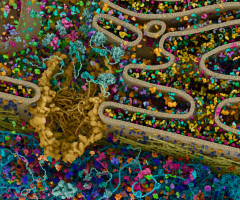
Men diagnosed with prostate cancer can be provided with a more accurate estimate of their risk of death from the disease, and treatment planned accordingly, according to a Research Article published by Vincent J. Gnanapragasam, of the University of Cambridge, Cambridge, UK and colleagues in PLOS Medicine.
Prostate cancer is one of the most common cancers affecting men, and the risk of disease progression and death is very variable when the disease is diagnosed while it is localised to the prostate gland.
Providing as accurate an estimate as possible of the individual risk is important in planning appropriate treatment, which could range from surgery to management by regular observation, as well as in providing advice and support to patients.
Based on data from more than 10,000 UK men with prostate cancer, Gnanapragasam and colleagues developed a scheme in which men were grouped into 5 strata with different levels of risk of prostate cancer death, based on straightforward, routinely available, clinical measurements such as prostate specific antigen (PSA) level, disease stage, and tumour grade as judged by biopsy.
In two large groups of men with prostate cancer analysed separately, this scheme performed better in predicting the risk of cancer death compared to the current 3 risk strata system endorsed by most national and international guidelines.
The authors noted that, because their study was limited by reliance on cancer registry records and by relatively short duration of follow-up (median 6.9 years), further validation in independent additional cohorts is needed.
In an accompanying Perspective article, Sigrid V. Carlsson and Michael W. Kattan, respectively of the Memorial Sloan Kettering Cancer Center, New York, USA and Cleveland Clinic, Ohio, USA, discuss the importance of accurate risk estimation in prostate cancer to guide decision making by doctors and their patients.
Source: PLOS Medicine
The World Cancer Declaration recognises that to make major reductions in premature deaths, innovative education and training opportunities for healthcare workers in all disciplines of cancer control need to improve significantly.
ecancer plays a critical part in improving access to education for medical professionals.
Every day we help doctors, nurses, patients and their advocates to further their knowledge and improve the quality of care. Please make a donation to support our ongoing work.
Thank you for your support.